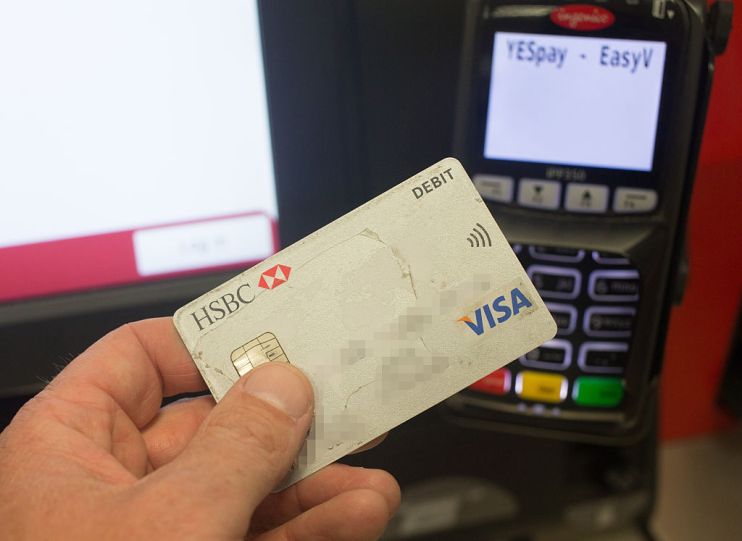Card payments made up four in every five pounds spent last year

Debit or credit cards accounted for more than four in every five pounds spent in 2020, as the pandemic sped up cashless spending.
Cashless payments made up 81 per cent of spending last year, a slight increase from 78 per cent in 2019, according to the British Retail Consortium (BRC).
In its annual payments survey, the BRC said cash use accounts for just 15 per cent of total spending in retail while still making up 30 per cent of individual transactions, after the pandemic.
Shops encouraged customers to pay by card in a bid to reduce the spread of coronavirus while some businesses refused to take cash at all.
Consumers also made fewer, but bigger shopping trips last year, influenced by Covid restrictions and messaging to stay at home.
The number of transactions fell by 13 per cent (from 19.1bn in 2019 to 16.7bn in 2020) but consumers spent on average 20 per cent more per transaction.
This meant the average transaction value increased from £20.16 in 2019 to £24.15 in 2020.
The payment limit for contactless cards is to more than double on October 15, to £100, the Treasury said earlier this year.
The limit was raised from £30 to £45 in April 2020, during the country’s first coronavirus lockdown.
Retailers spent more than £1bn to accept card payments from customers in 2020, after debit cards saw transaction fees rise by 22 per cent to 7.2p per transaction.
Business groups including the BRC have lobbied the government to intervene on anti-competitive practices in card payments.
Andrew Cregan, payments policy advisor, BRC said: “The pandemic has accelerated the trend towards card payments, with more than four in every five pounds spent in retail now made with credit or debit cards. Basket sizes also rose, as customers made bigger, but fewer purchases. While cash use has declined in importance, it remains vital for many people who do not have access to other payment methods.
“Despite the general movement to card payments, retailers are being punished through the soaring cost of accepting such payments.”